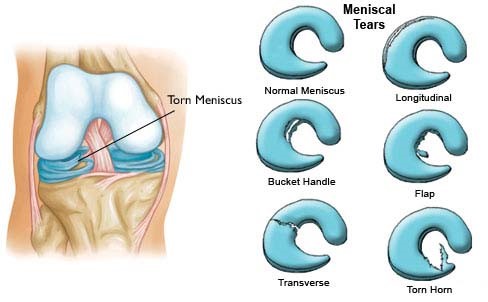Knee Pain – Meniscal Injury Guide
Lately at Cannington Physiotherapy we have had a lot of patients coming to us with knee pain.
Whilst no two knees are alike, we have noticed a rise in the number of Meniscal injuries. But what does this actually mean?
The meniscus is the shock absorber for the Knee and helps keep the joint lubricated to move freely.
Patients with Meniscal injuries typically report the following symptoms
• A twisting injury to the knee with immediate discomfort
• Pain on the inside or the outside of the knee close to the joint line.
• Pain when attempting to take the heel to the buttock i.e. full bending
• Catching and locking inside the joint when attempting to bend the knee
• Generalised swelling and discomfort of the knee
Some meniscal injuries can be managed with a well-designed strengthening program and modification of activities. However, many patients with meniscal injuries require arthroscopic surgery to repair the damaged structures.
Even if surgery is required physiotherapy is still very important to reach full recovery. Some patients may require orthotics or knee braces and of course the need for adequate stretches and exercise are still very important.
If you have knee pain and think it could be a meniscal injury speak with your therapist at Cannington Physiotherapy for your options.

